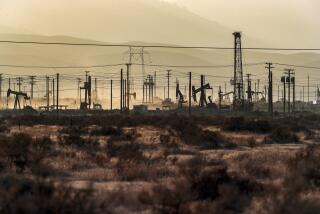Signal Won’t to Try Bar SANDER Issue From November Ballot
- Share via
The company that wants to build a controversial trash-burning energy plant has decided not to make a last-ditch legal challenge to a November ballot measure aimed at halting construction of the plant, known as SANDER.
A spokesman for Signal Environmental Systems said the company’s attorneys decided Friday not to file suit to challenge a San Diego City Council decision earlier this week to put the clean air initiative on the ballot.
Instead, the company will concentrate on running a campaign to defeat the November ballot measure, the spokesman said.
Backers of the issue, sponsored by San Diegans for Clean Air, object to the SANDER plant based on questions about its emissions, which would include suspected and known carcinogens such as dioxin, cadmium and arsenic.
Almost Missed Ballot
Earlier this month, it appeared that that measure had failed to gain the proper number of signatures to qualify for the ballot. The first count indicated there were only 48,797 valid names, far short of the 54,454 the city clerk’s office said was necessary.
But proponents convinced the council to conduct a $30,000 recount that raised the number of valid names to 51,498. Then, the group proved this week that the clerk’s office had incorrectly calculated the number of names needed for a spot on the ballot.
When the city acknowledged the error, it lowered the requirement to 50,500--just enough to allow the measure to squeak by.
The Signal spokesman said the company will oppose the measure based on the fact that a crucial environmental impact report about the proposed plant will not be completed until next March or April. Only then, he said, will citizens know the full health effects of the project.
Government officials say the joint city-county SANDER project is needed because of the area’s shrinking landfill capacity. The proposed Kearny Mesa plant would burn 2,250 tons of trash a day and generate enough electricity annually for 60,000 homes.
More to Read
Sign up for Essential California
The most important California stories and recommendations in your inbox every morning.
You may occasionally receive promotional content from the Los Angeles Times.













